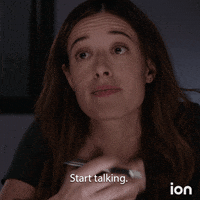Hi, I’m Kate. Ask an Author is an advice column for authors at all stages of writing, publishing, and hand-wringing. Have a question? Fill out this form and I’ll answer it in a future response! Looking to work one-on-one? Find me at Broad Editorial for additional support.
Last week I was doing a workout video in my living room (as one does) and often I find the things instructors say cheesy and borderline offensive (or downright offensive) and try to tune it out. But in this particular video, Amoila Cesar, a very ripped gentleman who lifts very heavy weights while cursing, said something that stuck with me: “Don’t get mad about the results you didn’t get from the work you didn’t do.” (I might be paraphrasing, but that was the core of it.)
It made me think about what I always think about, which is writing, and the results I want and the work I’ve put in and also, yes, the work I haven’t always put in, and the times when I’ve been correspondingly unhappy with my outcomes. And so I wanted to share this pithy and annoyingly accurate aphorism with all of you, because when it comes to writing, the same truth applies. You can’t get mad about the results you don't get from work you don’t do.
There are SO MANY THINGS in writing and publishing that are beyond our control. What agents will think, what editors will think, what acquisitions and sales will think, what trade reviewers will think, what some rando on Goodreads will think (“one star, too much swearing”), what each and every reader will decide they hate (or love!) about our work. We can do our best to attend to the reader’s experience, and to think about what we’re really trying to say and how it’s coming across on the page. But in the end, once our work is out of our hands, our time with it is over.
The only thing we have any control over is the writing itself, and the process of doing it. I talk on here a lot about craft and revision, about getting words down and then taking the time—real time—to shape them and rethink them, to revisit the page with fresh eyes and new perspectives, to not shortchange your writing by rushing these steps. There’s no clear formula for making the magic happen (if there were, wouldn’t we all be bestsellers?). But it seems clear to me that there is a fundamental truth here, which is that we have to put in the work if we want to experience its outcomes.
I can’t do a pull-up without challenging myself to work on pull-ups. I can’t be a musician without picking up an instrument. I can’t be a painter without painting. And I can’t finish a manuscript or get an agent or get a book deal or become a better writer if I don’t sometimes actually write.
Writing time is about more than literally writing, of course. It’s about daydreaming and note taking and long walks and scribbled 3am notes and singing in the shower and taking breaks when you need them, and then getting back in the chair when you need to do that, too. It doesn’t mean you’re writing ALL THE TIME, but it also means being honest with yourself about where your time is going and what you’re actually doing, so that when you aren’t seeing the results you’d hoped for, you can have a real conversation with yourself about why that is and what you might want to do about it.
Sometimes life gets away from us. Sometimes life is in the living and that doesn’t happen in front of a screen. Sometimes there are days that aren’t for writing. Sometimes there are writing days that are actually thinking days, or laundry days, or being there for a friend days. Sometimes there’s no room for anything else besides work and caretaking and other responsibilities. This post isn't to say YOU SHOULD ALWAYS BE WRITING. It’s meant to give a gentle, loving nudge and say: Are you doing what you want to with your time, when you have it? If you have a goal you want, or an outcome you’re hoping for, what are you doing to get there?
Publishing isn’t a machine where you put in hard work and everything you want automatically comes back to you. There isn’t a clear, direct line between input and output here. If you lift more, you will get stronger. If you write more, your writing muscles with strengthen, too. But of course there are those factors outside our control. The people who are getting agents and getting publishers and getting whatever accolades you might dream of are not, by definition, people who worked harder than you. Lots of us are working very hard at this and not always getting where we want! And it will always feel like there is someone who has “more.”
But while I can be upset about all my near-misses, and the times I poured every ounce of my heart, and years of my life, into books that didn’t get an agent or didn’t sell or seemed like they were on the right track and then gasped their last dying breath right in front of me—I can’t be mad about not getting something I didn’t work for. Nothing is linear, and even talking about “progress” in terms of a creative life is problematic. But I hope you’ll take this post in the spirit in which I mean it, which is encouragement to Do The Thing.
Keep going!
Kate
p.s. I obviously didn’t answer a question this week—I didn’t have anything in my inbox! If you’ve got a question about writing, craft, or publishing, let me know here and I’ll answer it in the next letter!




